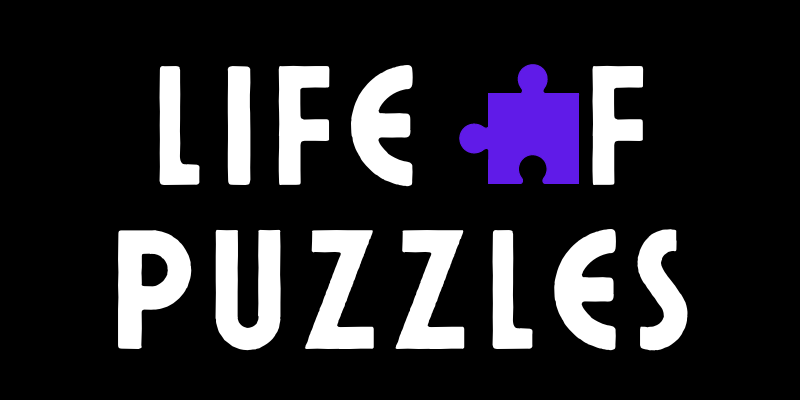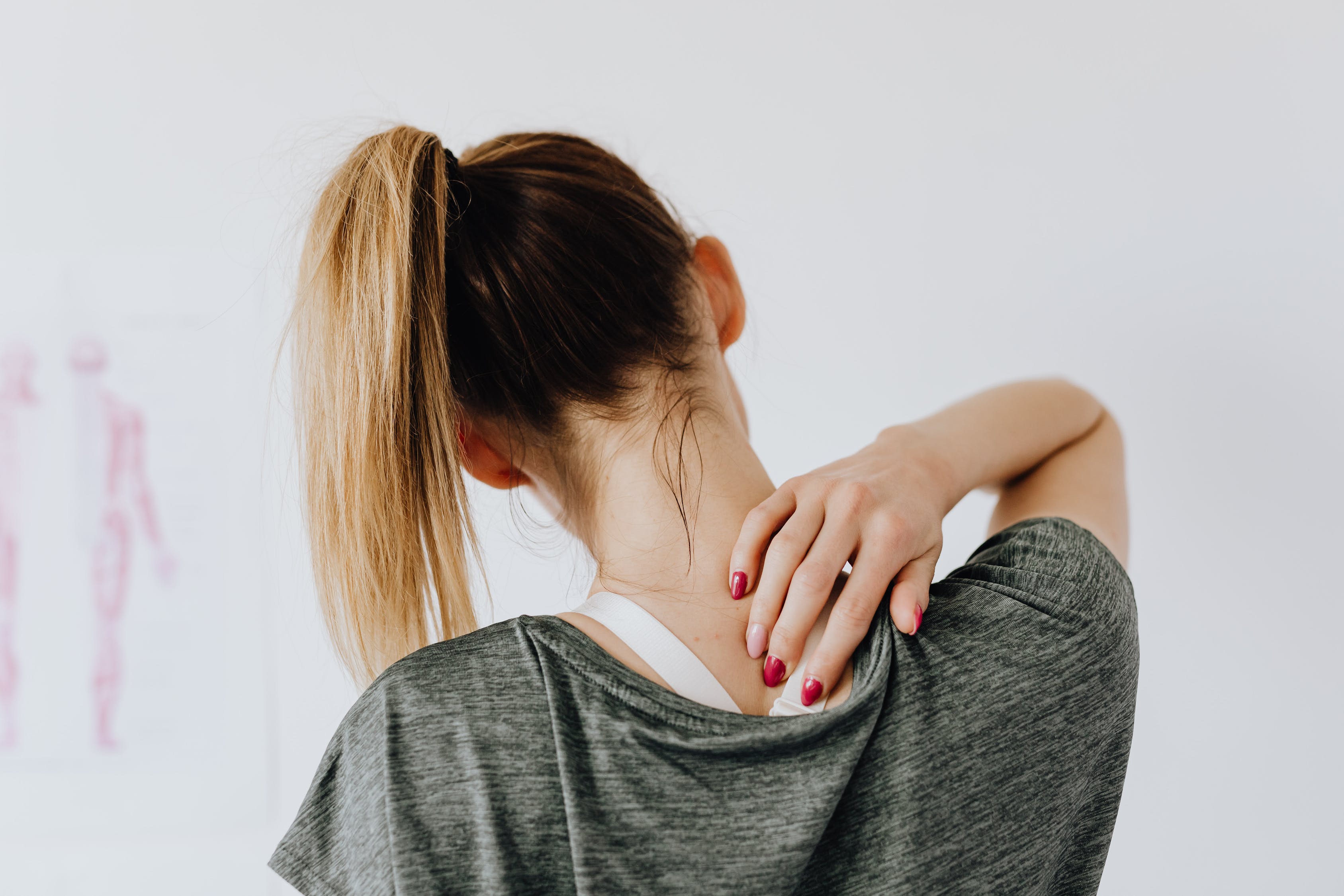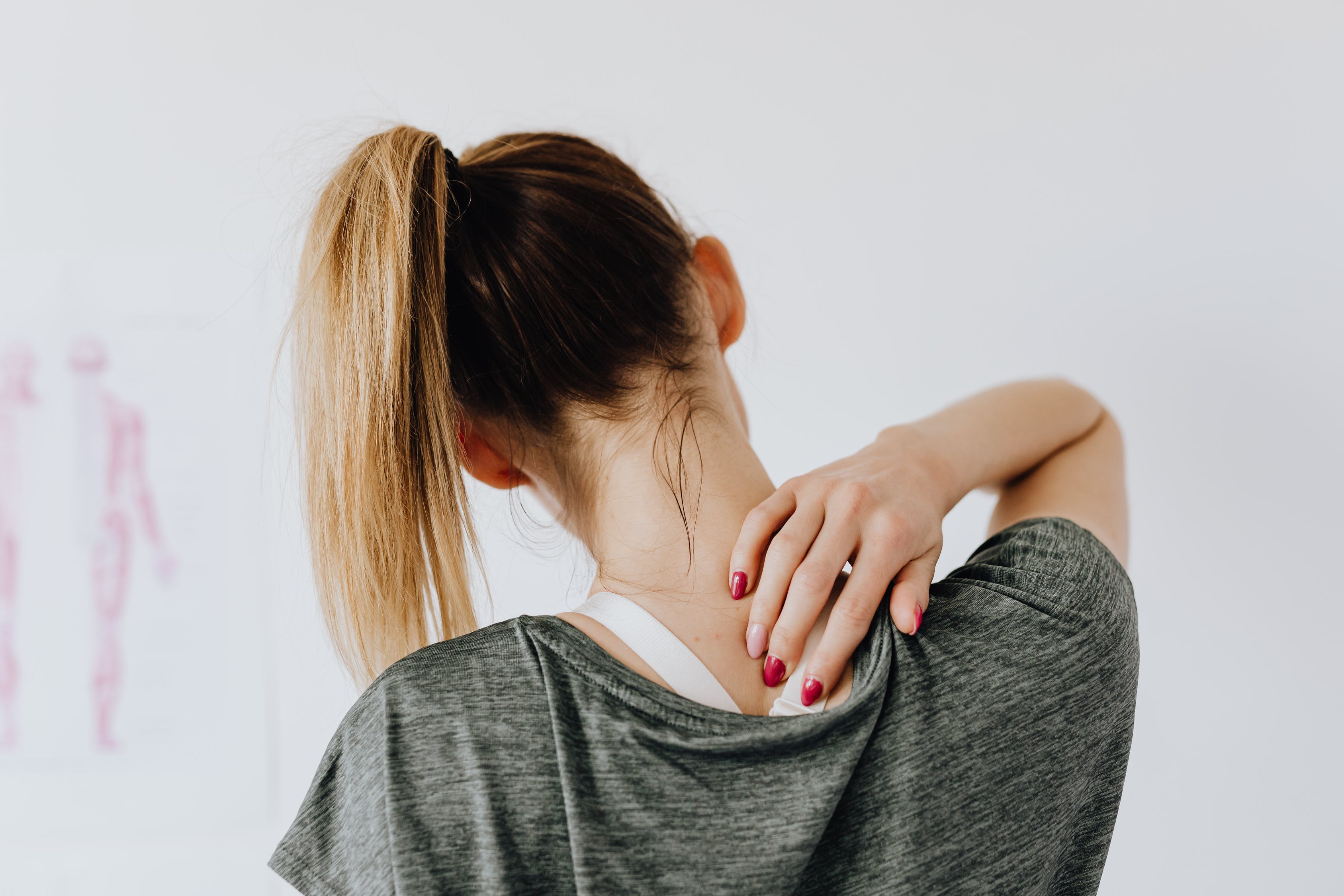
“One more piece..”
We’ve all been there, that moment where it’s 11pm and you’re hunched over the coffee table in dim light, trying to assess whether it’s a pink or red at the corner of your piece.
Although puzzling can be incredibly addictive and beneficial in plenty of other ways, here are a few tips and suggestions to help you avoid long term back pain when puzzling.
1. Change your position and try to solve the puzzle at a height
Standing up usually helps most people. This can also have the added benefit of allowing you to walk around the table and see the puzzle from different angles (which may help you in your puzzle challenge)!
Try to use your dining table or an adjustable standing desk if you have one, rather than the floor, to allow standing up whilst solving it.
2. Try using a puzzle board, or a type of stand for your puzzle
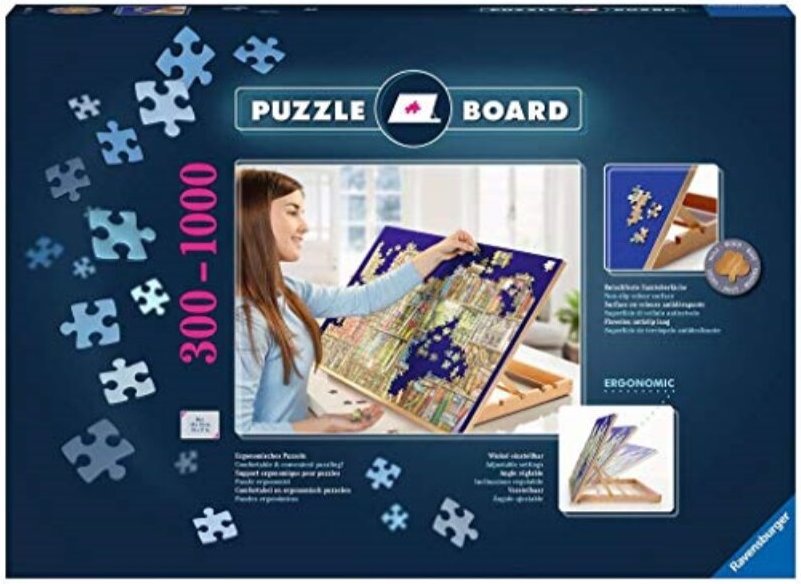
Here is a puzzle board made by Ravensberger - it’s large enough for a 1000 piece puzzle, can lift and be easily adjusted to different heights.
However some puzzles may be round or longer than this board so it doesn’t necessarily fit them all. It’s also rather expensive, so if you don’t feel like splashing out on a puzzle board, you can easily fashion one using a cork bulletin board or easel on a stand. Many of these are also obtainable online.
Use a magnifying glass ... yes, there are puzzle-specific ones too!
3. Here’s a magnifying glass AND a puzzle scoop AND a light in one!
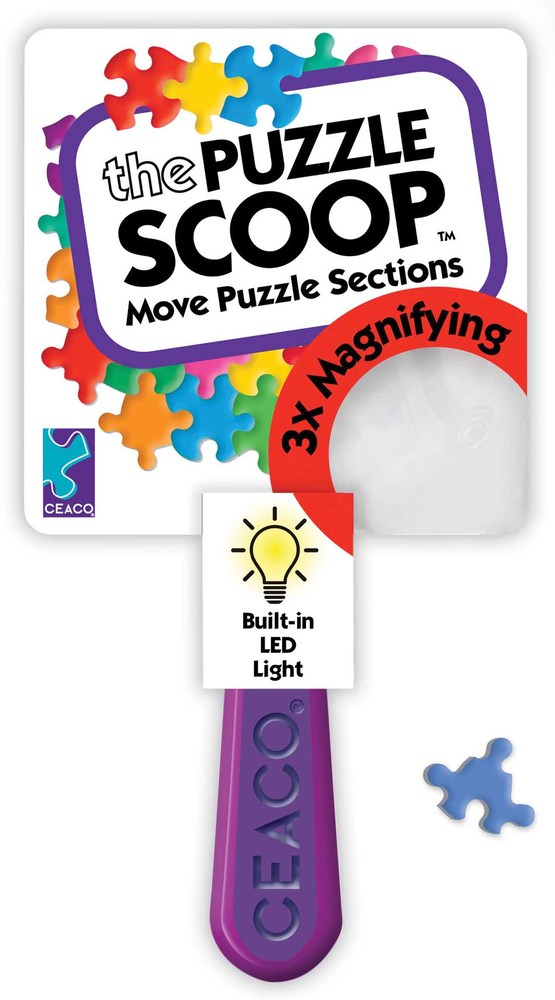
Sometimes using a magnifying glass avoids you hunching to see that little extra detail in the puzzle piece. If you don’t feel like getting a puzzle-specific one, a normal magnifying glass would probably do.
4. Play around with your light (dimmer lights help)
If you have a dimmer switch it may help to play around to get the perfect light setting for puzzling. Sometimes a slightly dimmer light avoids that nasty glare you get.
5. Take a break and stretch
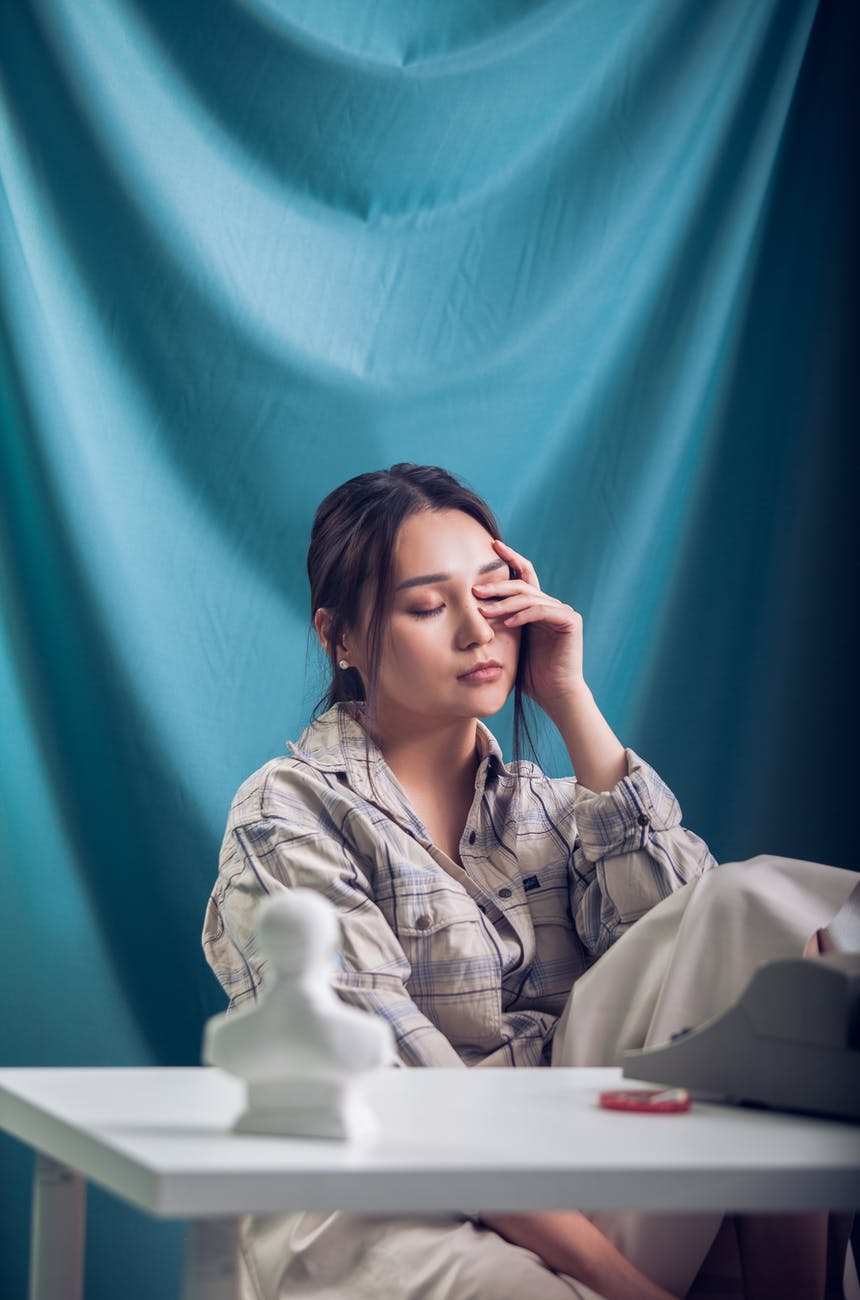
Go for a walk, wander around, stretch out the back. I know it’s addictive but the process of completing jigsaw puzzles is meant to be enjoyable :)
Rounded (or hunched) shoulders and a ‘chin down’ position for long periods of time cause compression of the neck and muscle fatigue. Your brain tends to register pain to encourage you to move before you hurt yourself. If you ignore it, you may overload the muscles and end up with tightness and/or aching pain.
You may get so engrossed in the puzzle that you end up leaning over the table for hours without moving the rest of your body. Moving out of a sustained position regularly and ‘lengthening’ the spine improves blood supply and prevents the body from stiffening.
Remember to take care of your body and happy puzzling!
